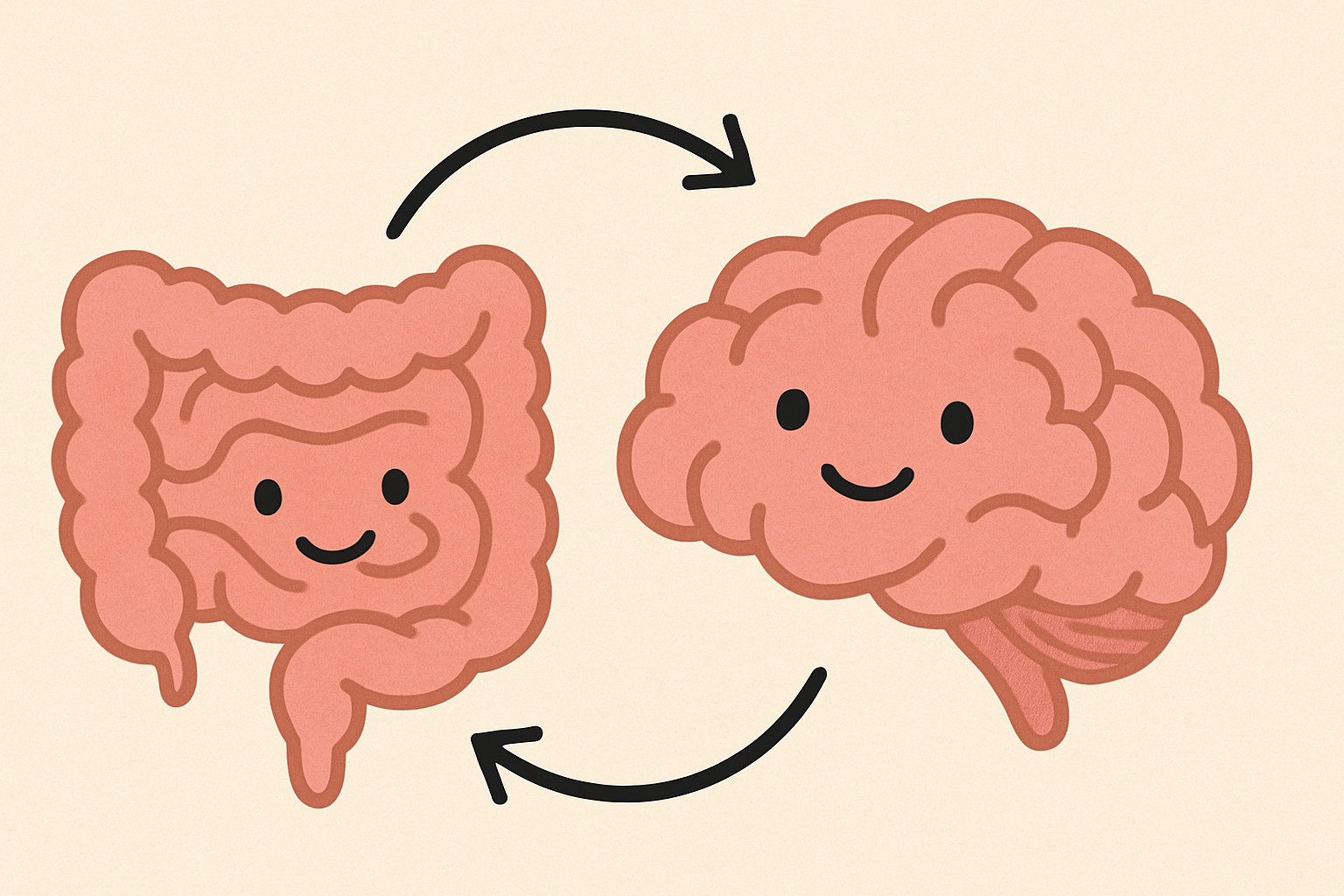The Gut-Brain Connection and IBS: What Science Reveals About Your Second Brain'
You’ve probably heard that saying, “go with your gut”, when it’s time to make a big decision. Or you’ve had a “gut feeling” about something.
Have you ever actually thought about why these sayings exist?
Well, maybe that’s because your gut is truly like a second brain.
What is the gut-brain connection?
The gut-brain connection is a bi-directional communication system between our digestive system and our brain.
Naturally, the brain (of course) communicates with all bodily systems - but the brain and the gut are like besties. They share a lot with each other.
More information passes between your gut and your brain than anywhere else in the body. In fact, there are more nerve cells in your gut than anywhere else in your body outside of your brain.
Why does this connection even exist?
Ultimately, this feedback loop exists to benefit our health and our survival.
Our safety: If you eat something that makes you sick, your brain remembers the (frankly horrifying) experience and avoids that food or place in the future.
Stress response: If you’re in danger, the brain reduces blood flow to the gut and redirects energy to the heart, lungs and muscles so you can fight or flee.
Energy balance: The gut also communicates hunger and fullness signals, ensuring the brain knows when to eat and when to stop.
The gut-brain connection and IBS
If you live with IBS, you’ve probably noticed how stress, anxiety, or even simple excitement can trigger pesky gut symptoms. This is the gut-brain connection in action.
Stress and gut symptoms: Stress can speed up or slow down gut movement, leading to diarrhea, constipation, or both.
Heightened sensitivity: People with IBS often have what’s called “visceral hypersensitivity,” meaning the gut nerves send stronger pain signals to the brain than in people without IBS.
Microbiome imbalance: Research shows that people with IBS often have differences in their gut bacteria, which may influence how the gut and brain communicate.
So, why does it matter to understand the gut-brain connection if I have IBS?
Understanding this connection helps explain why IBS isn’t “just in your head”. It’s a real condition with strong ties to the nervous system.
It also explains why treating IBS is multi-faceted. Managing diet is so very important, but so is looking after stress, sleep and your mental health.
Ways to support the gut-brain connection
Dietary changes
A low FODMAP diet (no, not just the elimination phase, but the whole thing - reintroduction and personalisation!) can help reduce symptoms like bloating, diarrhoea and nausea, and can ultimately help you find the FODMAPs you’re sensitive to and manage these long-term.
Stress management
Techniques like deep breathing, yoga and mindfulness calm the vagus nerve and can help reduce gut flare-ups.
Cognitive behavioural therapy (CBT) & gut-directed hypnotherapy
Research shows these therapies reduce IBS symptoms by retraining the gut-brain pathways.
Regular exercise
Gentle activity supports gut motility and improves mood.
The gut-brain connection shapes so much of what happens in IBS. While it can feel overwhelming, you don’t have to manage it alone (and you shouldn’t!). Working with a gut health dietitian gives you the support and long-term skills to feel more in control day to day and get back to your best self.

